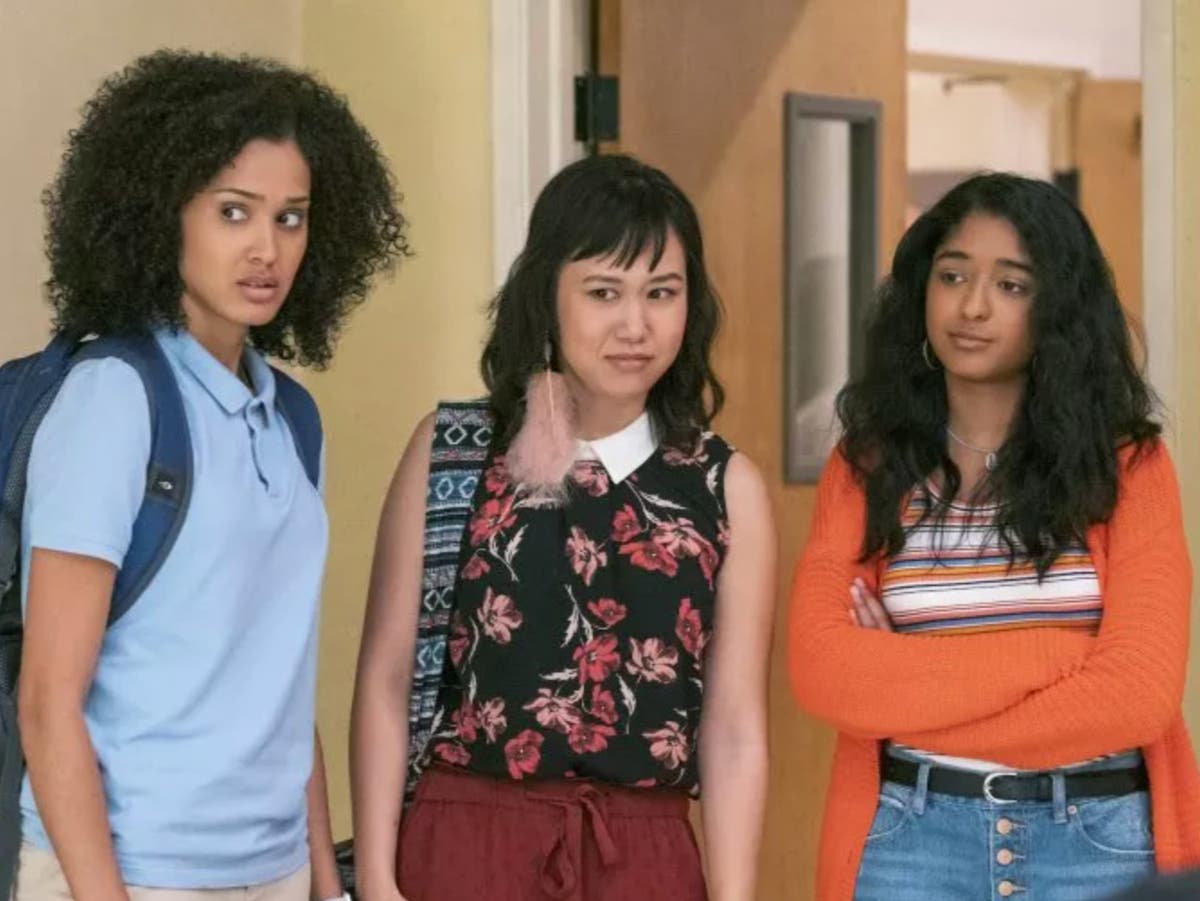
Sign up for the View from Westminster email for expert analysis straight to your inbox Get our free View from Westminster email Please enter a valid email address Please enter a valid email address SIGN UP I would like to be emailed about offers, events and updates from The Independent. Read our privacy notice Thanks for signing up to the
View from Westminster email {{ #verifyErrors }}{{ message }}{{ /verifyErrors }}{{ ^verifyErrors }}Something went wrong. Please try again later{{ /verifyErrors }}
Mindy Kaling’s TV show Never Have I Ever has been making waves since the first season was released on Netflix in 2020. It follows the life of Indian-American teenager Devi Vishwakumar, and has received equal amounts of love and hate from South Asian audiences.
Despite the show’s mixed reception, viewers came back to season two in the hopes that it would bring more to the table – and when it came to the addition of Aneesa, an Indian-American Muslim girl who was as cool as Devi was awkward, Never Have I Ever didn’t disappoint.
It’s no secret that we all love seeing someone like ourselves on screen, and as a Muslim-Pakistani girl, I’m all too aware that Muslim representation for women that isn’t sexualised or exoticised or just plain bad is difficult to come by.
So when Aneesa was introduced as a Muslim character in the show’s second season, I loved it – and not because she was like me at all. Quite the opposite in fact: Aneesa’s fashion at 16 is better than mine in my 20s and she has a certain cool-girl aesthetic that high school me couldn’t even think to dream of.
But like I did, she also struggles with her parents and obedience and observes eating Halal food. Seeing her on screen felt so important because it was one of the only times I’ve seen a Muslim character be comfortable in their own skin, without their Muslim-ness being the most important part of who they are. Aneesa isn’t a “perfect Muslim” but she doesn’t have to be, because that’s unrealistic.
I love that Aneesa is a teenager first and foremost, because Muslim representation and all the heavy discourse that comes with it can put way too much pressure on young Muslim women. Why should we have to make our religious identity a public stance, and always be called on to justify it?
While the character of Aneesa has received praise from viewers, Never Have I Ever’s previous attempt at exploring Islam fell flat. In season one, a scene where a young Hindu woman is shown as an outcast for choosing to marry a Muslim man has been described as Islamophobic. I’m not denying that Islamophobia is present in South Asian communities or across the world – after all, I’ve dealt with it. But that’s why I thought this scene was so important.
When viewers criticised the show for promoting Islamophobia, I thought it was a crucial acknowledgement of the ugly underlying perceptions that simmer below these supposed perceptions of South Asian diaspora communities being one big happy family.
Never Have I Ever seems to have confused viewers because it’s not afraid to acknowledge the extremely flawed nature of its characters and the community it represents. We put so much pressure on representation to perfectly encompass all of our experiences because representation for our community is so rare that it’s easy to pin all our desires for relatability onto any brown girl we see on screen. But that has to change.
Maitreyi Ramakrishnan, the actor who plays Devi, also tweeted during the backlash that the story isn’t meant to be representative of everyone but rather should be seen as a single story.
To keep up to speed with all the latest opinions and comment, sign up to our free weekly Voices Dispatches newsletter by clicking here
Devi herself as a character has been called out by viewers for her anger and selfishness when it comes to her closest relationships. From spreading a rumour about Aneesa’s eating disorder because she was jealous, to stalking her mom because she was that angry about her moving on from her dad, Devi hasn’t done a lot of things right over the course of the show. However, this only makes her character more vital.
So many young South Asian women grow up with this constant pressure to be perfect, and that’s reflected in the often stereotypical representation we see on TV. I’m not justifying Devi’s actions at all. I felt angry with the character, as we have enough on our plates without tearing each other down. But that too was valuable as an exercise in being OK with disliking someone.
I don’t like every brown person I meet in real life – why should I like all the ones on TV? At the heart of it, Devi is just another teenager. Sure, she’s brown but she’s also so many other things: messy, angry, obsessed with romance and, most of all, a work in progress. And for brown girls to see that is perhaps the most important representation of all.








